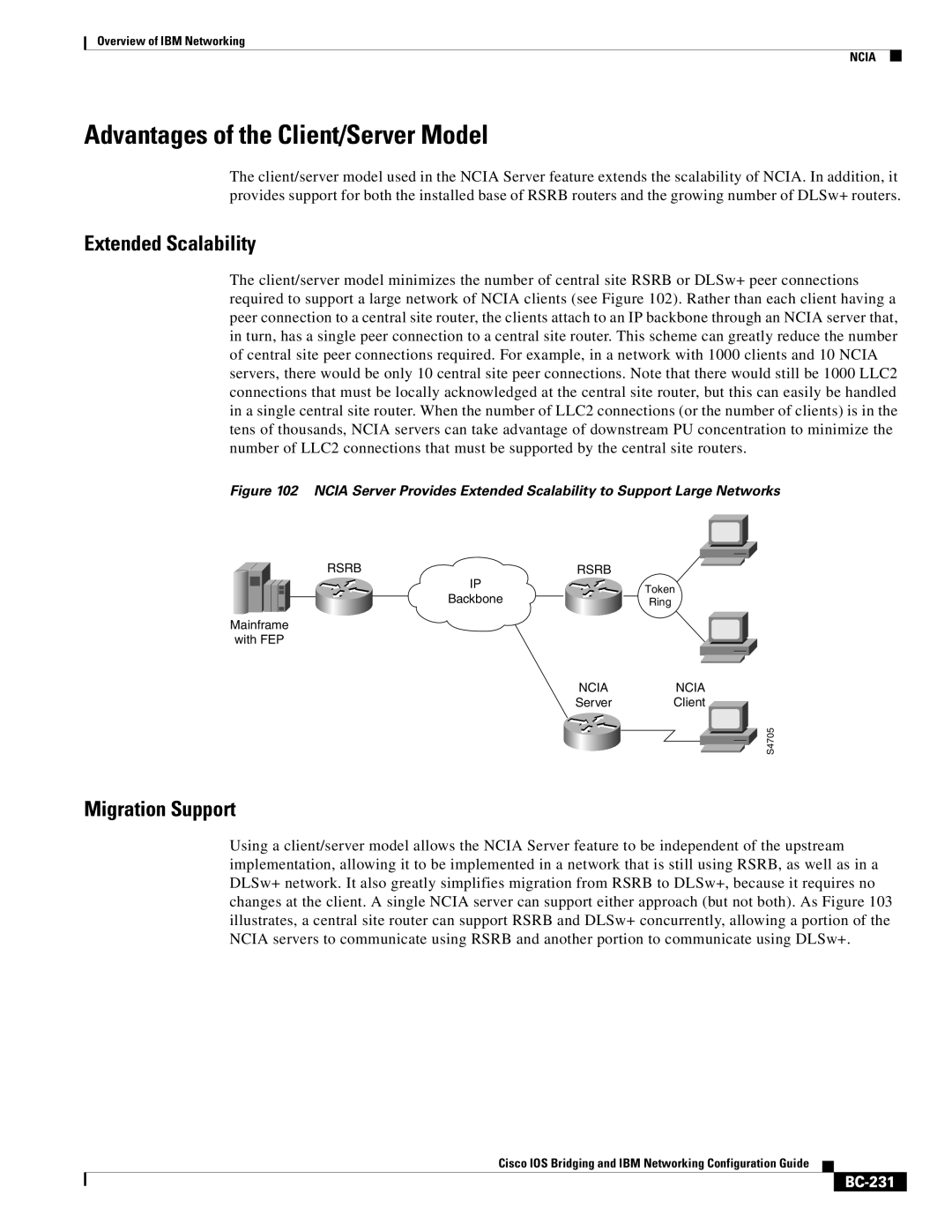
Overview of IBM Networking
NCIA
Advantages of the Client/Server Model
The client/server model used in the NCIA Server feature extends the scalability of NCIA. In addition, it provides support for both the installed base of RSRB routers and the growing number of DLSw+ routers.
Extended Scalability
The client/server model minimizes the number of central site RSRB or DLSw+ peer connections required to support a large network of NCIA clients (see Figure 102). Rather than each client having a peer connection to a central site router, the clients attach to an IP backbone through an NCIA server that, in turn, has a single peer connection to a central site router. This scheme can greatly reduce the number of central site peer connections required. For example, in a network with 1000 clients and 10 NCIA servers, there would be only 10 central site peer connections. Note that there would still be 1000 LLC2 connections that must be locally acknowledged at the central site router, but this can easily be handled in a single central site router. When the number of LLC2 connections (or the number of clients) is in the tens of thousands, NCIA servers can take advantage of downstream PU concentration to minimize the number of LLC2 connections that must be supported by the central site routers.
Figure 102 NCIA Server Provides Extended Scalability to Support Large Networks
RSRB | RSRB | |
IP | Token | |
Backbone | ||
Ring |
Mainframe
with FEP
NCIANCIA
ServerClient ![]()
S4705
Migration Support
Using a client/server model allows the NCIA Server feature to be independent of the upstream implementation, allowing it to be implemented in a network that is still using RSRB, as well as in a DLSw+ network. It also greatly simplifies migration from RSRB to DLSw+, because it requires no changes at the client. A single NCIA server can support either approach (but not both). As Figure 103 illustrates, a central site router can support RSRB and DLSw+ concurrently, allowing a portion of the NCIA servers to communicate using RSRB and another portion to communicate using DLSw+.
Cisco IOS Bridging and IBM Networking Configuration Guide
